I know that Strings are stored on the heap and the reference to them is stored on the stack. So in the code below one would point to "John" on the heap from the stack and likewise two would point to "Smith" on the heap from the stack.
So what happens when i do one = two?
Does one now point to where two points to because two contains a reference to a point on the heap or does it change the "John" on the heap to "Smith"?
String one;
one = "John";
String two = "Smith"
one = two;
